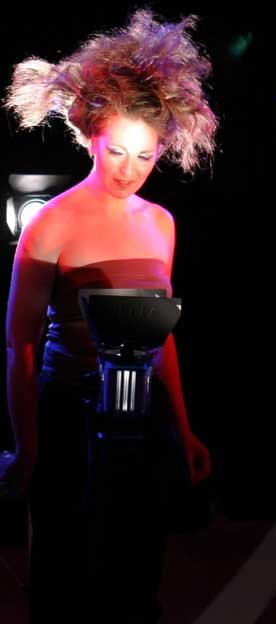

home | about | interviews | works | reviews | events | media
contact | links

Deirdre Gribbin in conversation with Clare Stevens, deputy editor of Classical Music magazine
CS: You were born and brought up in Belfast, Northern Ireland; how important is your Irish identity to you as a composer?
DG: Well, my Irish identity is something that people refer to a lot, but I see myself very much as Northern Irish and I feel very strongly that those are the cultural roots that I come from. It's a very separate culture in a way, though of course there are very strong resonances with both British and Irish traditions. That makes it quite unique, and has given me a lot to think and write about over the years.
In musical terms, how did growing up in Belfast affect what you were writing?
I didn't start writing until I was about twenty, which is quite late, and I think that has more to do with the fact that women weren't encouraged to write music in the way that they are now. We weren't given the opportunity, nor was the label 'a composer' connected with women- all the music we heard was written by men. Because of the conflict in Northern Ireland it took me a while to acknowledge the importance of the place in my music. In 1997 I wrote Tribe a work for large ensemble which contrasts passages for marching band against lyrical Irish folk music and most recently Unity of Being-A peace anthem written for the 35 th anniversary of the Ulster Orchestra, which was the first international event in New York city after 9/11. That was for me one of my most significant concerts, so very moving in that particular context.
What were your earliest musical memories?
One of my earliest memories was of my father listening to traditional music at home. And my grandmother used to sing Irish folk songs, she had a dark voice for a woman - very deep and haunting. I remember the sound of it very clearly.
continue...
© 2005 Deirdre Gribbin
site design: track5.co.uk
"To place a new work between these masterpieces was to measure it against giants.
Yet, extraordinary as it may seem, Deirdre Gribbin’s What the Whaleship Saw seemed every bit as mesmerising as the Haydn or Bartok."
Richard Morrison
June 2004 The Times